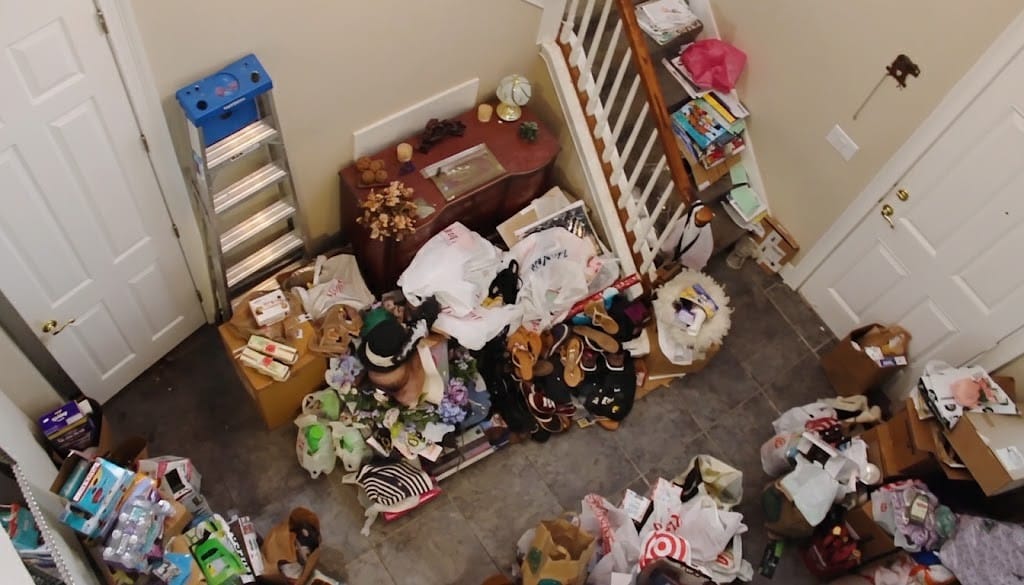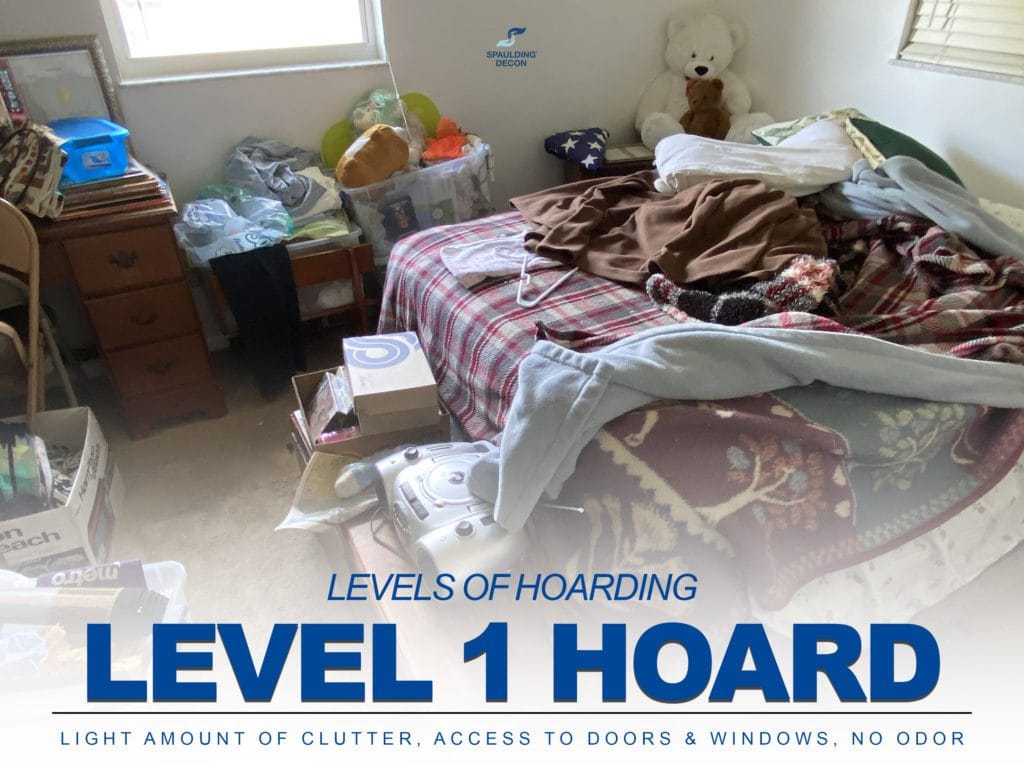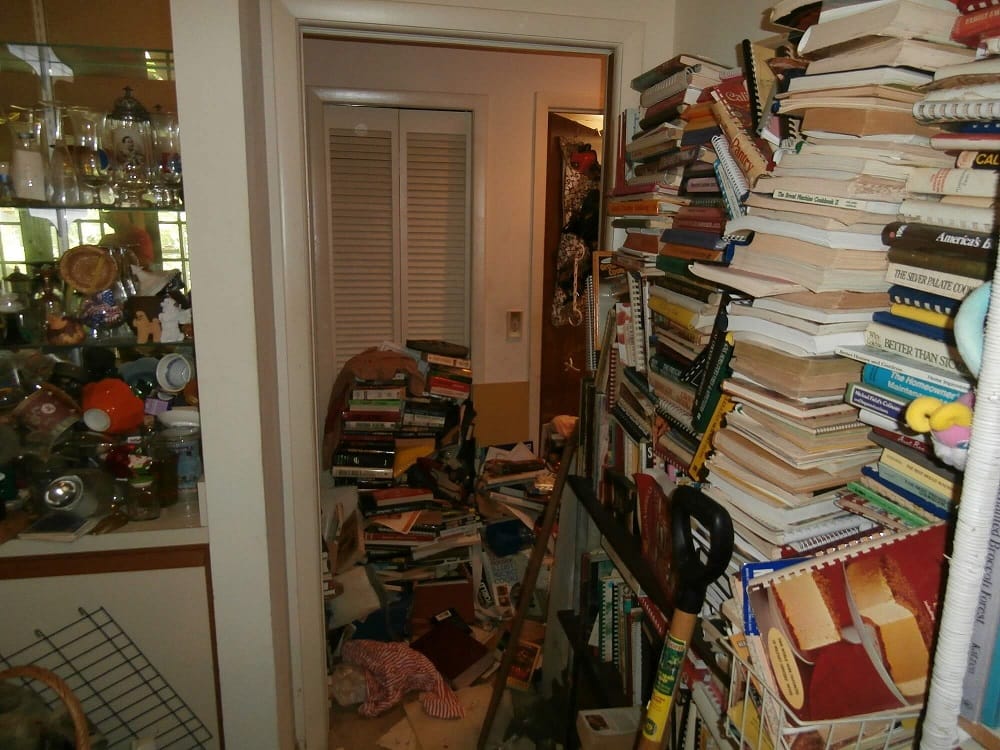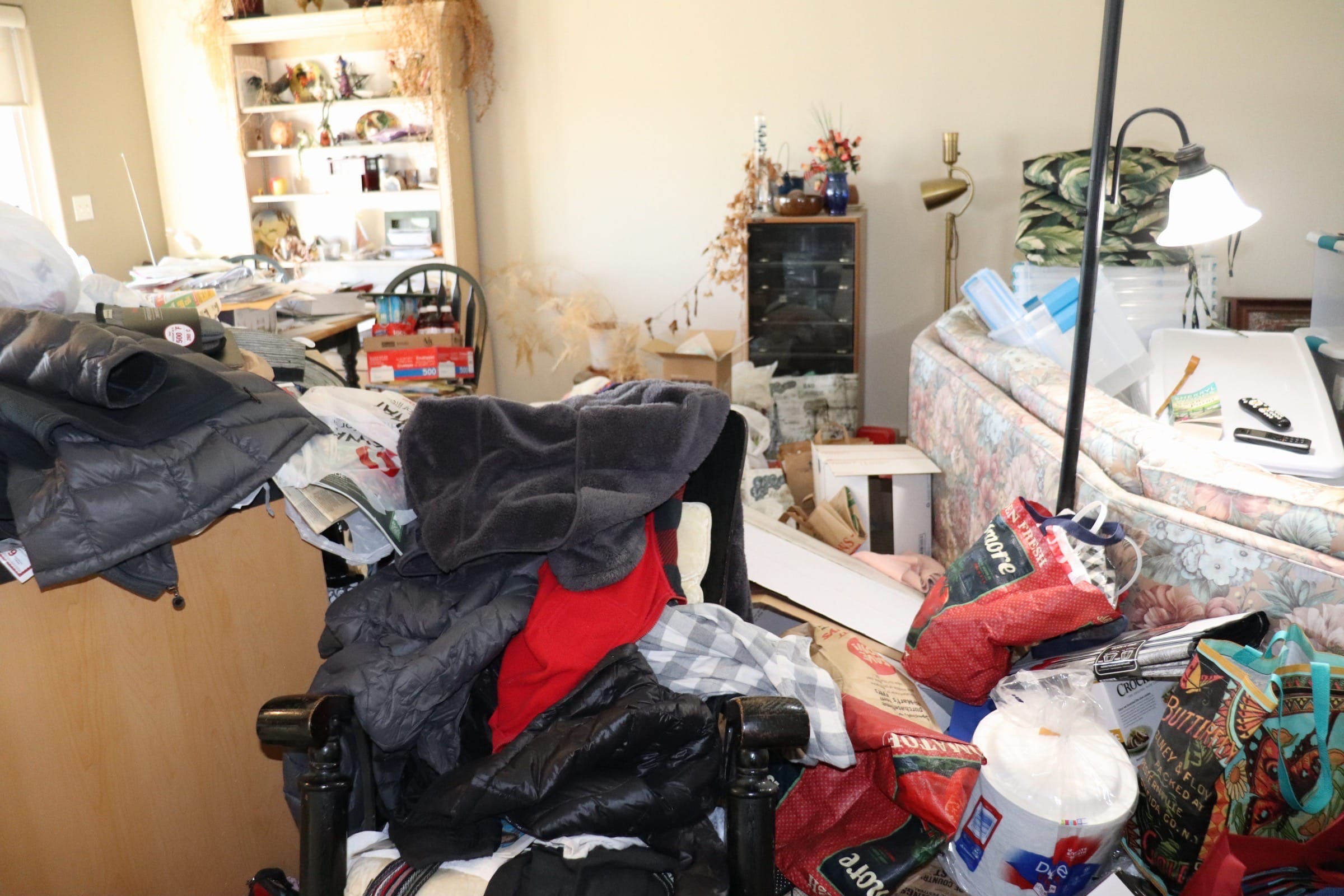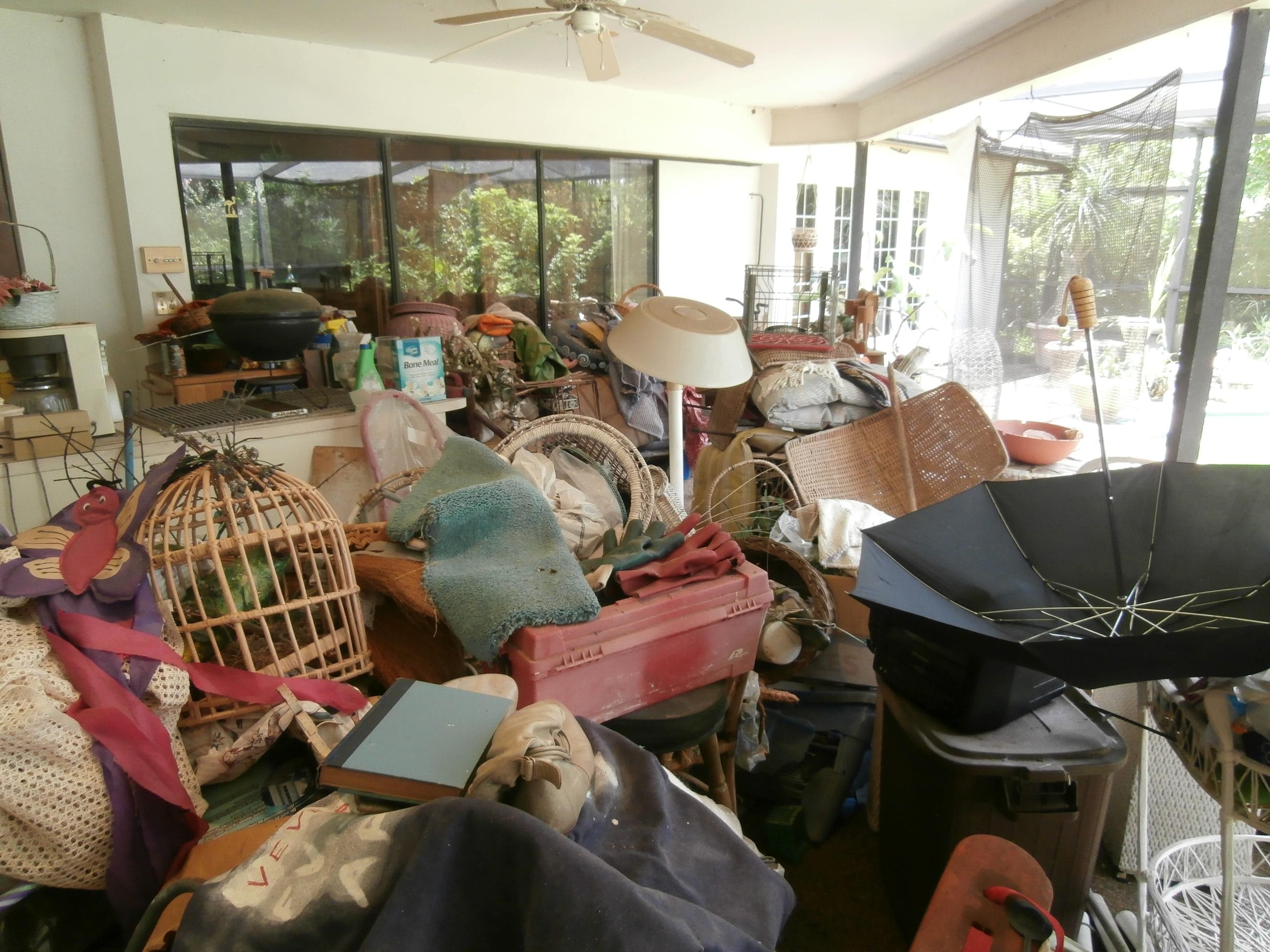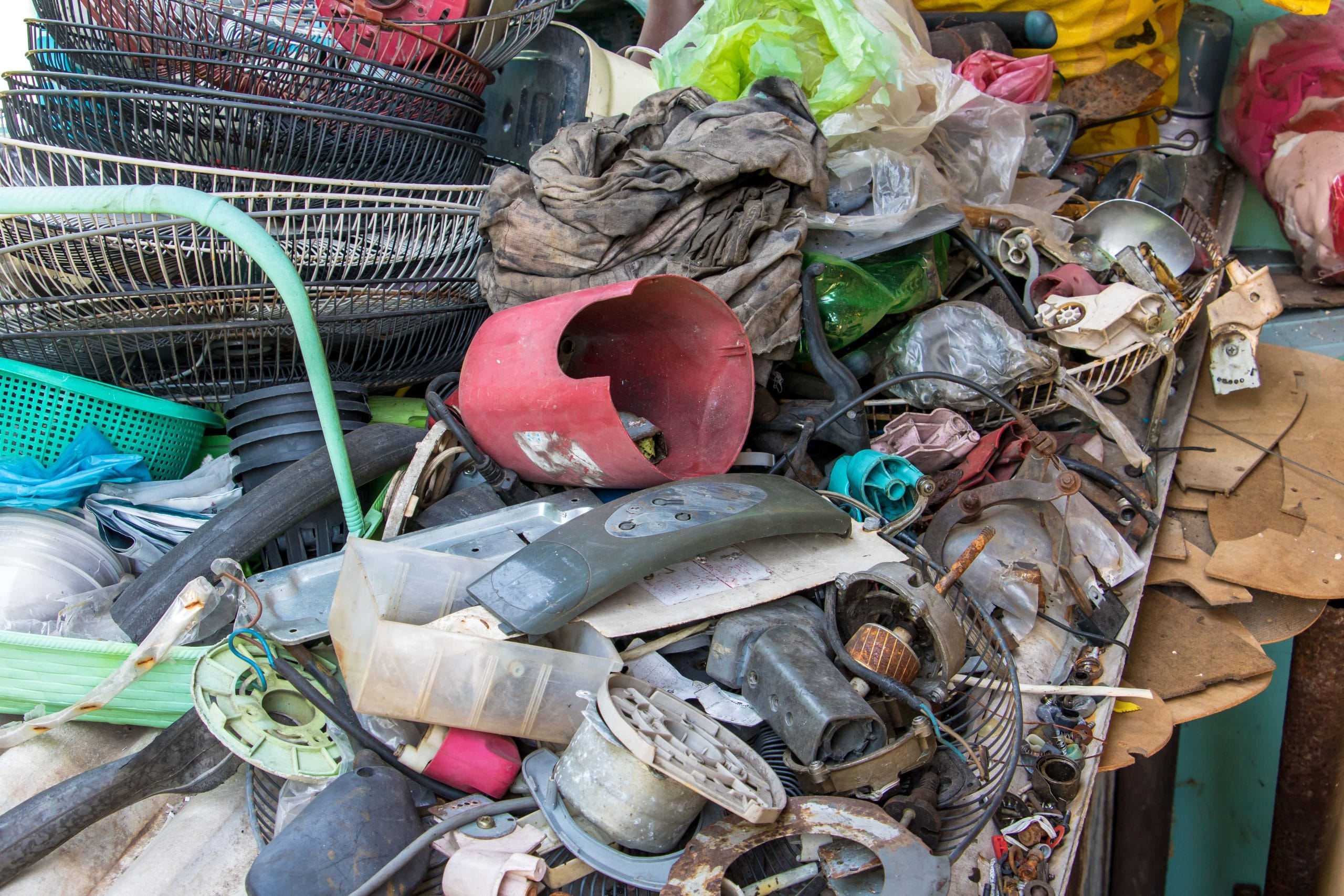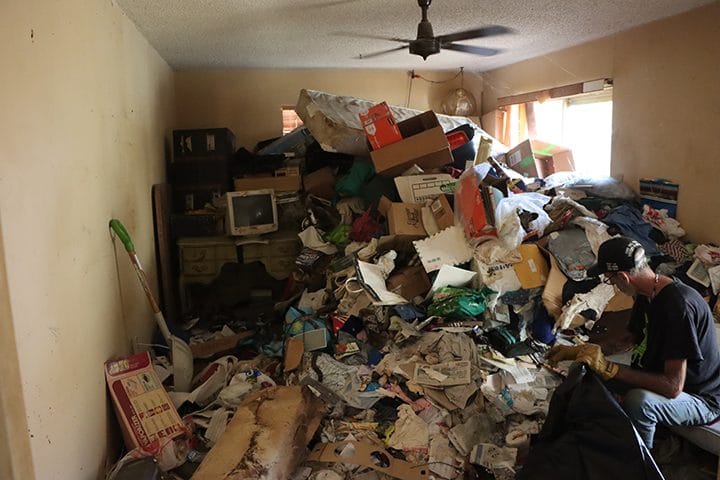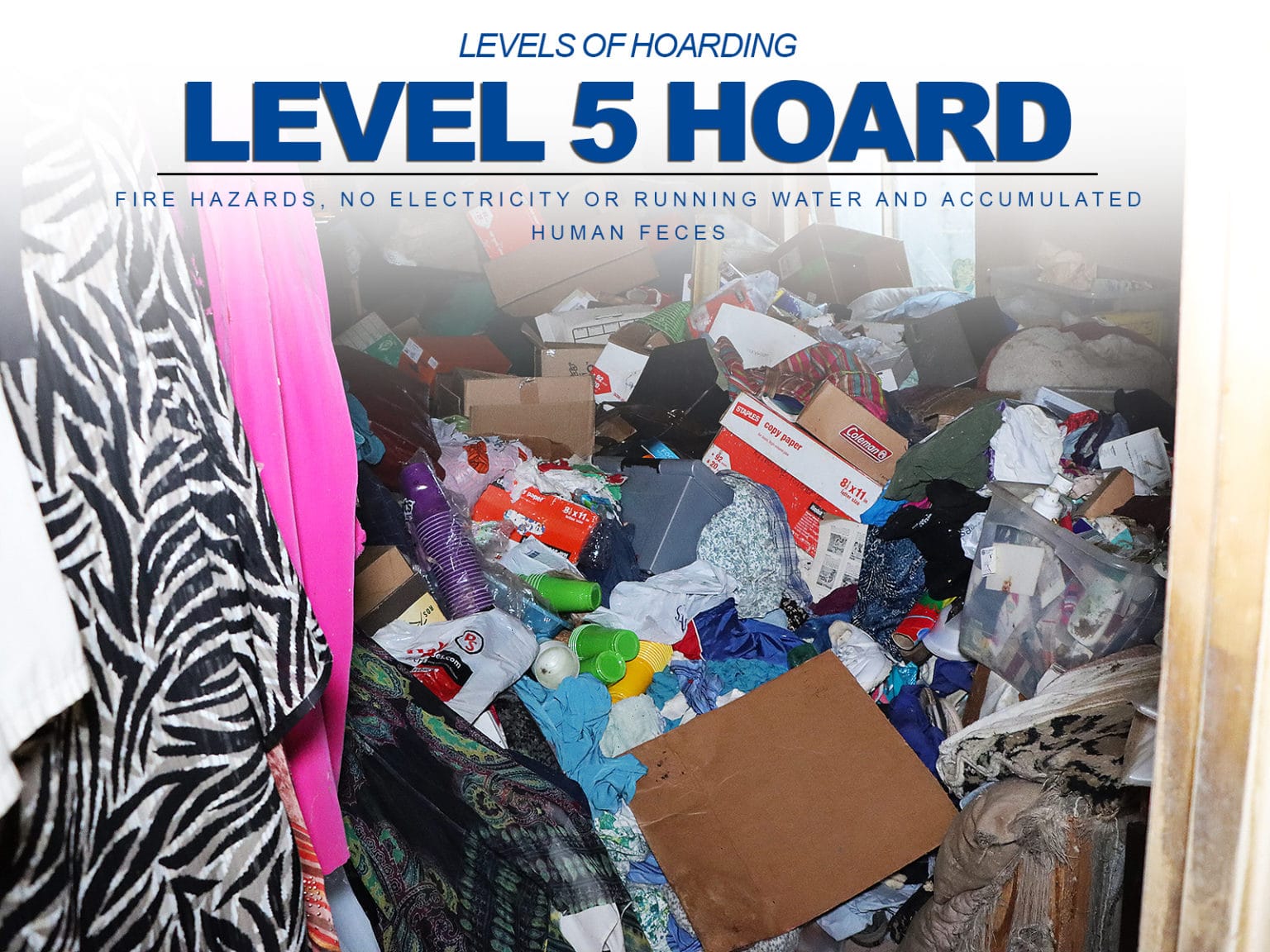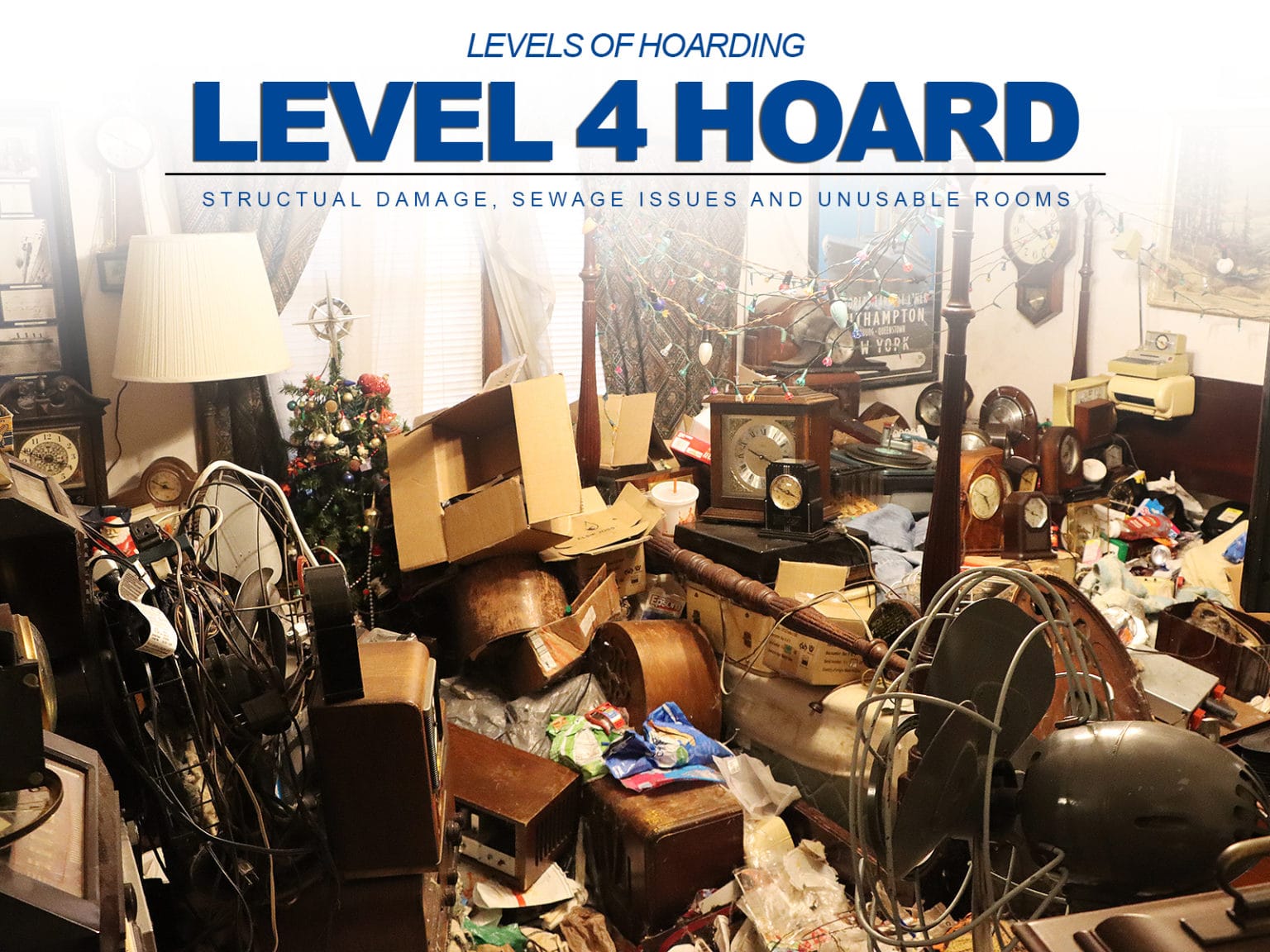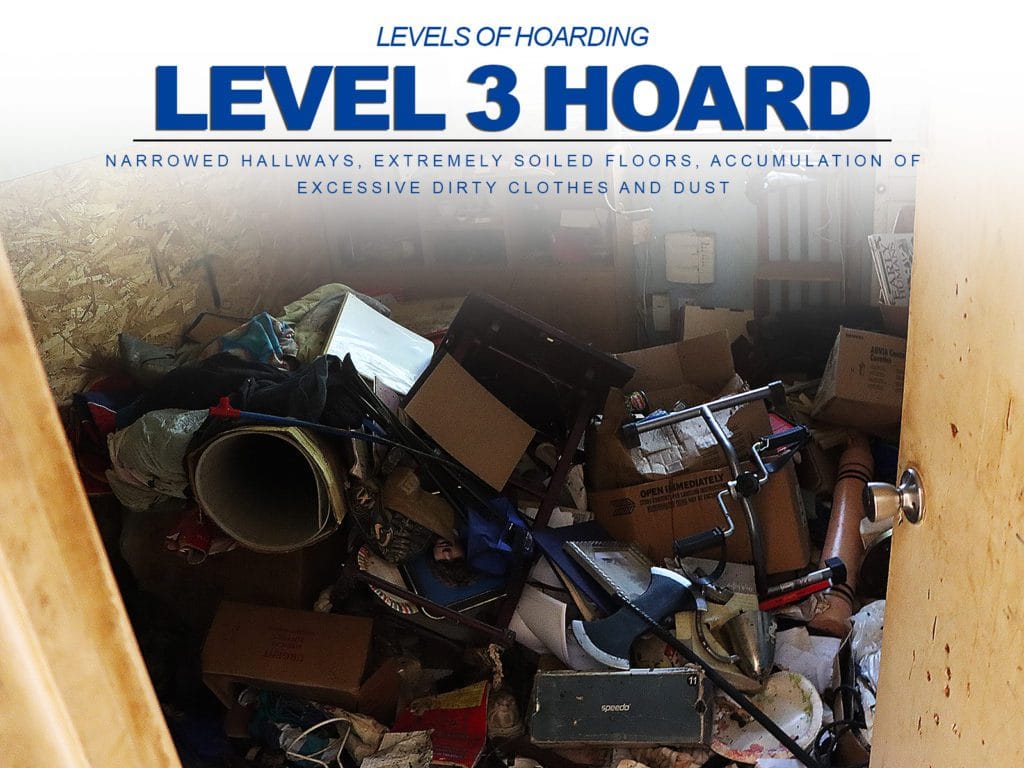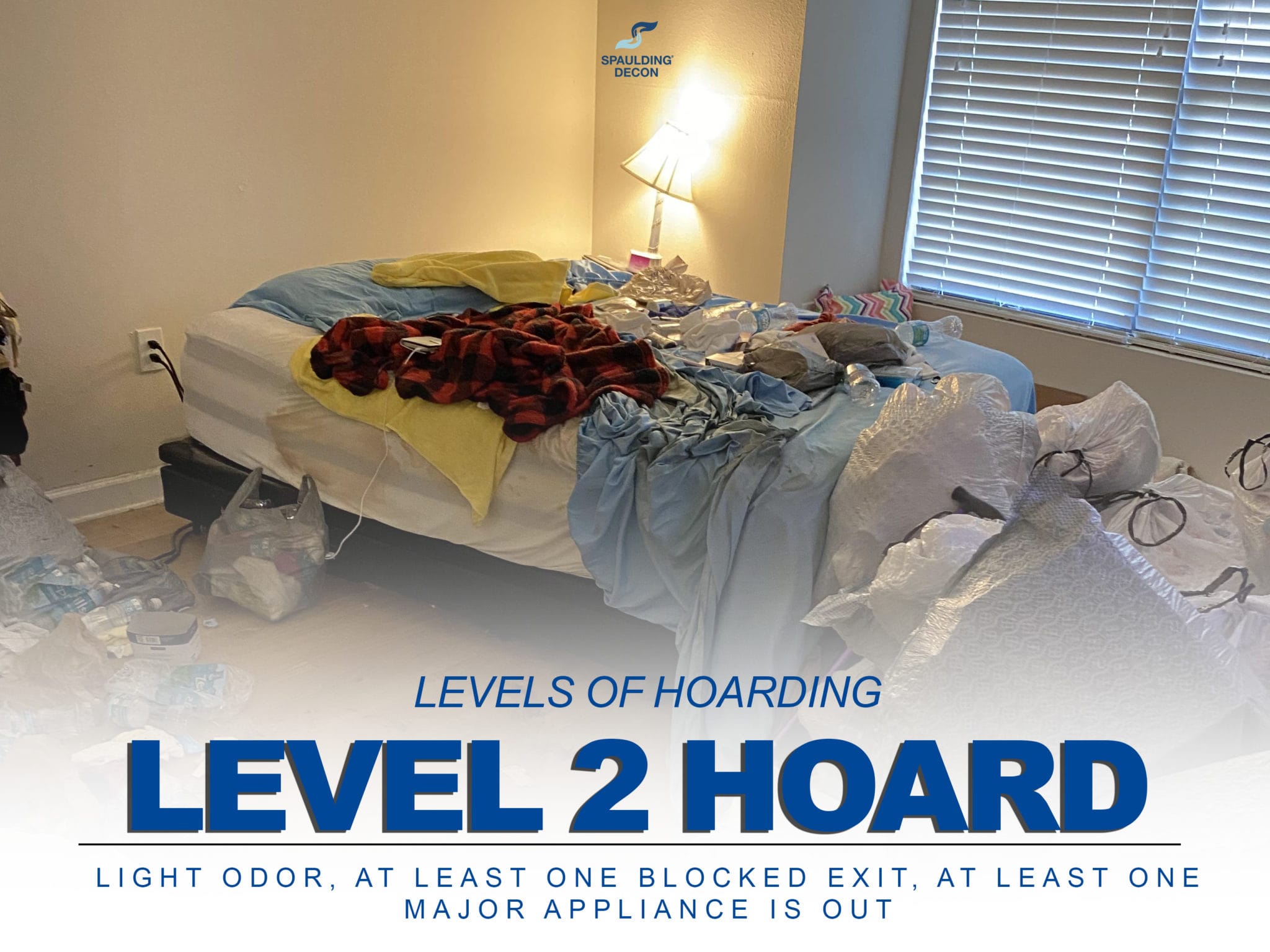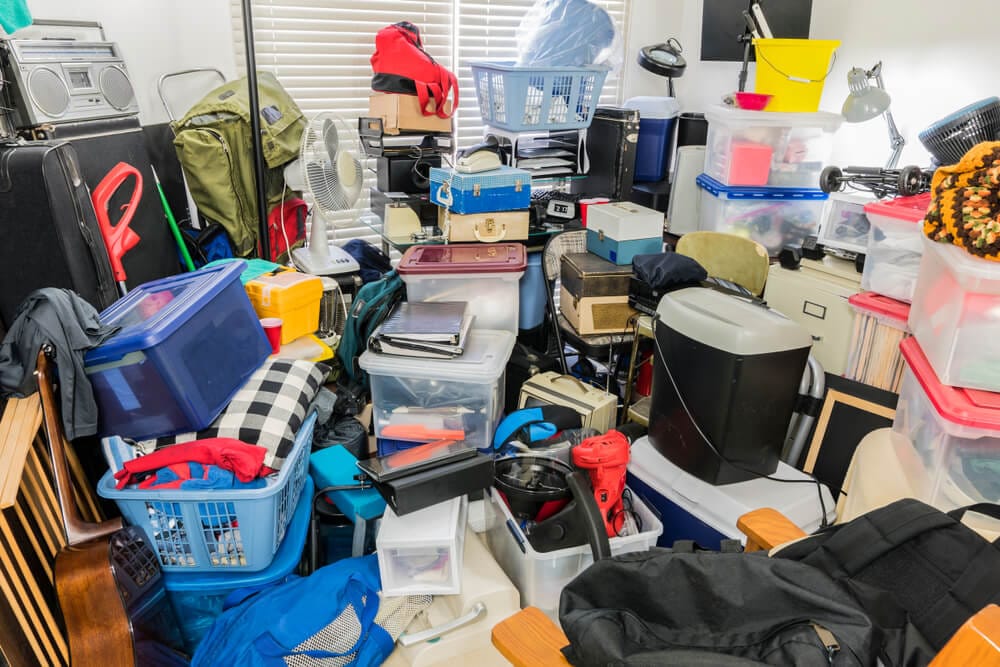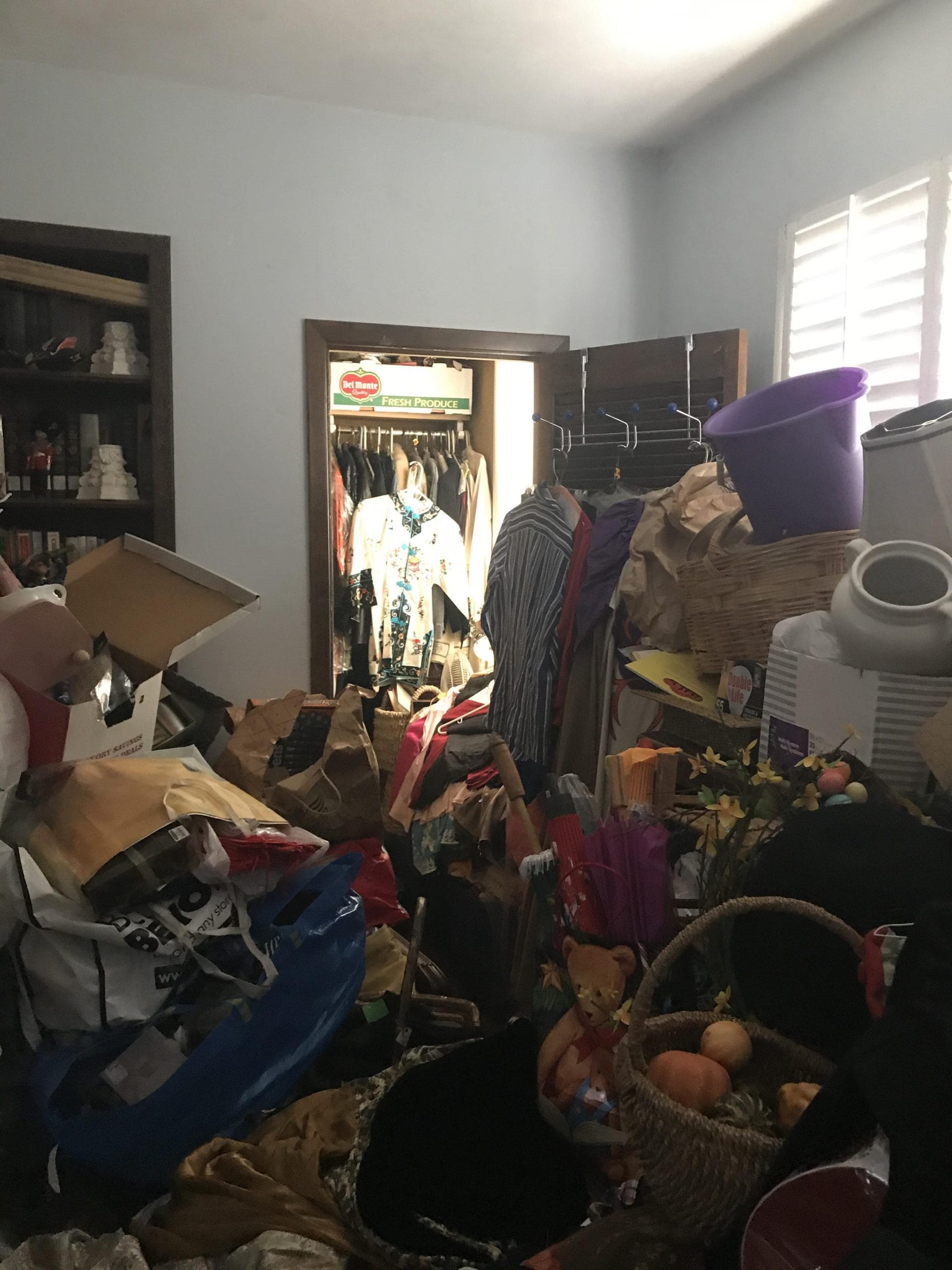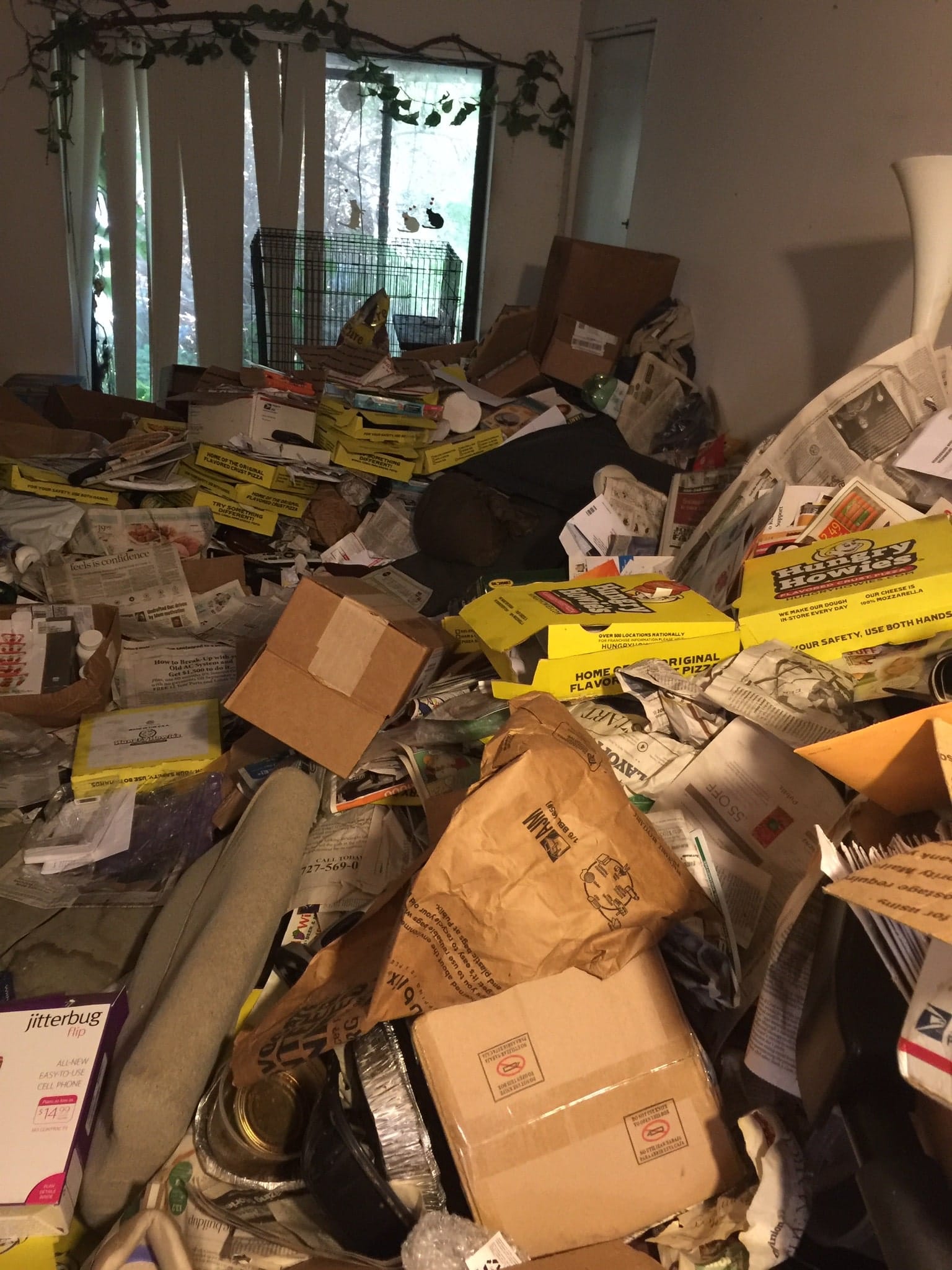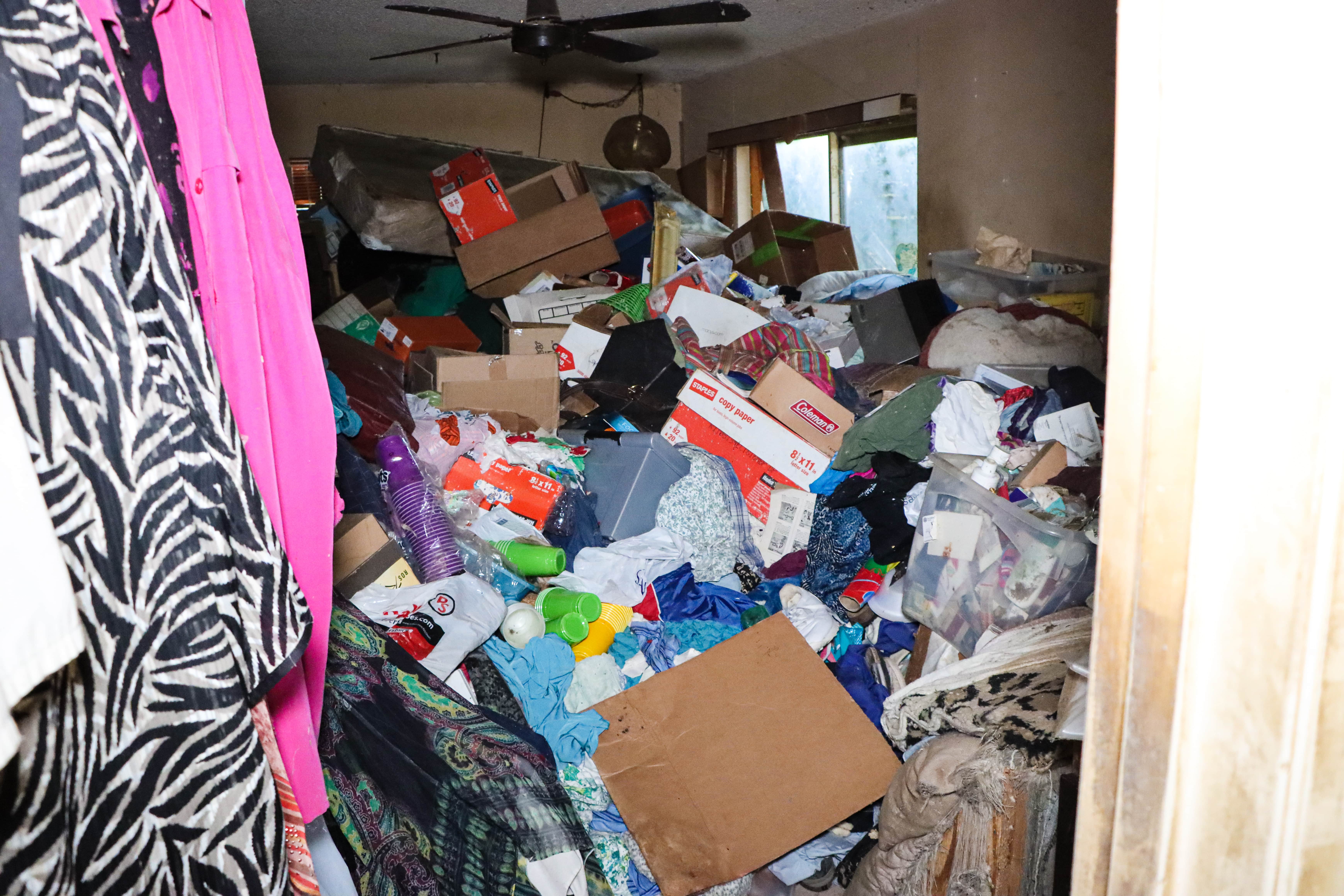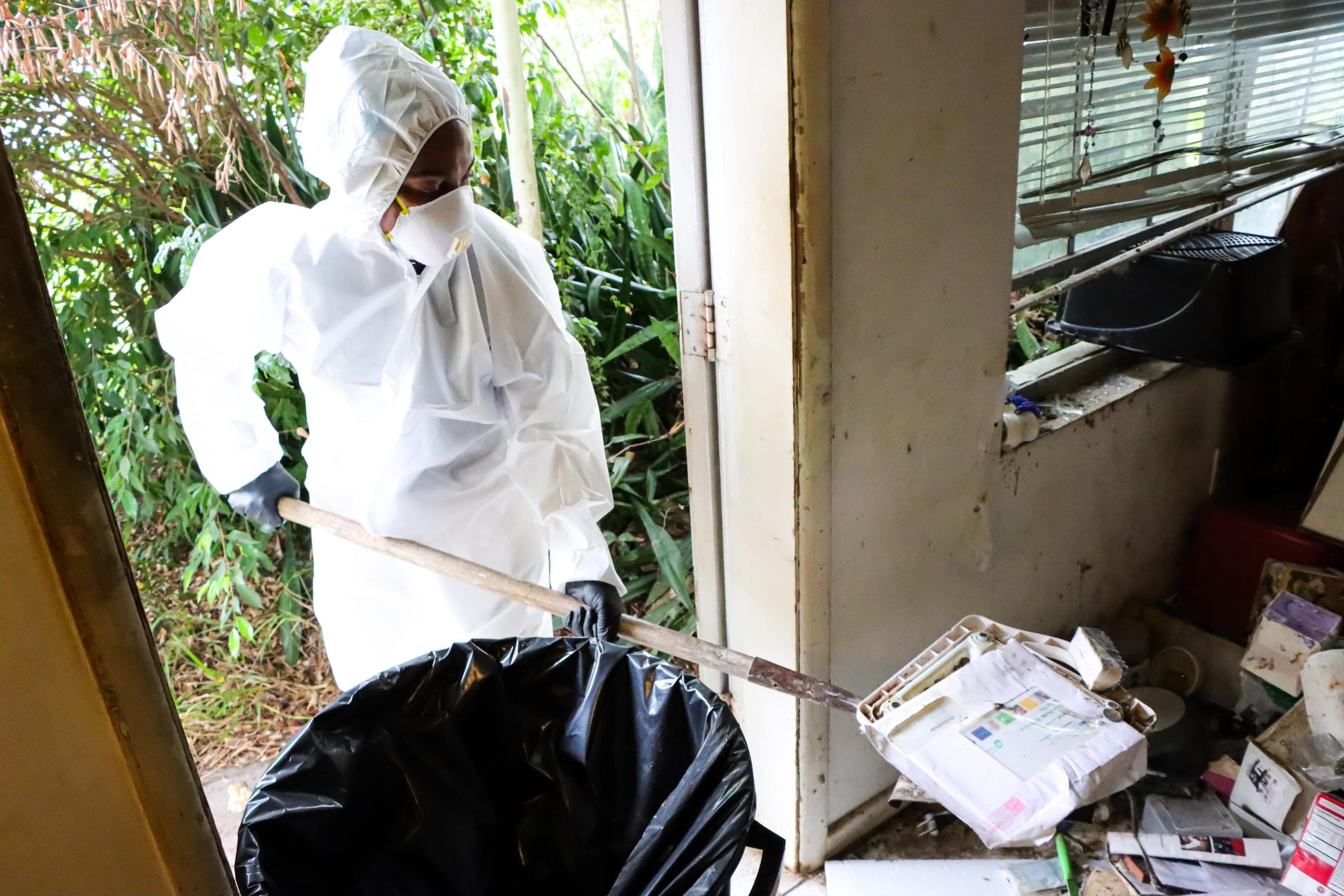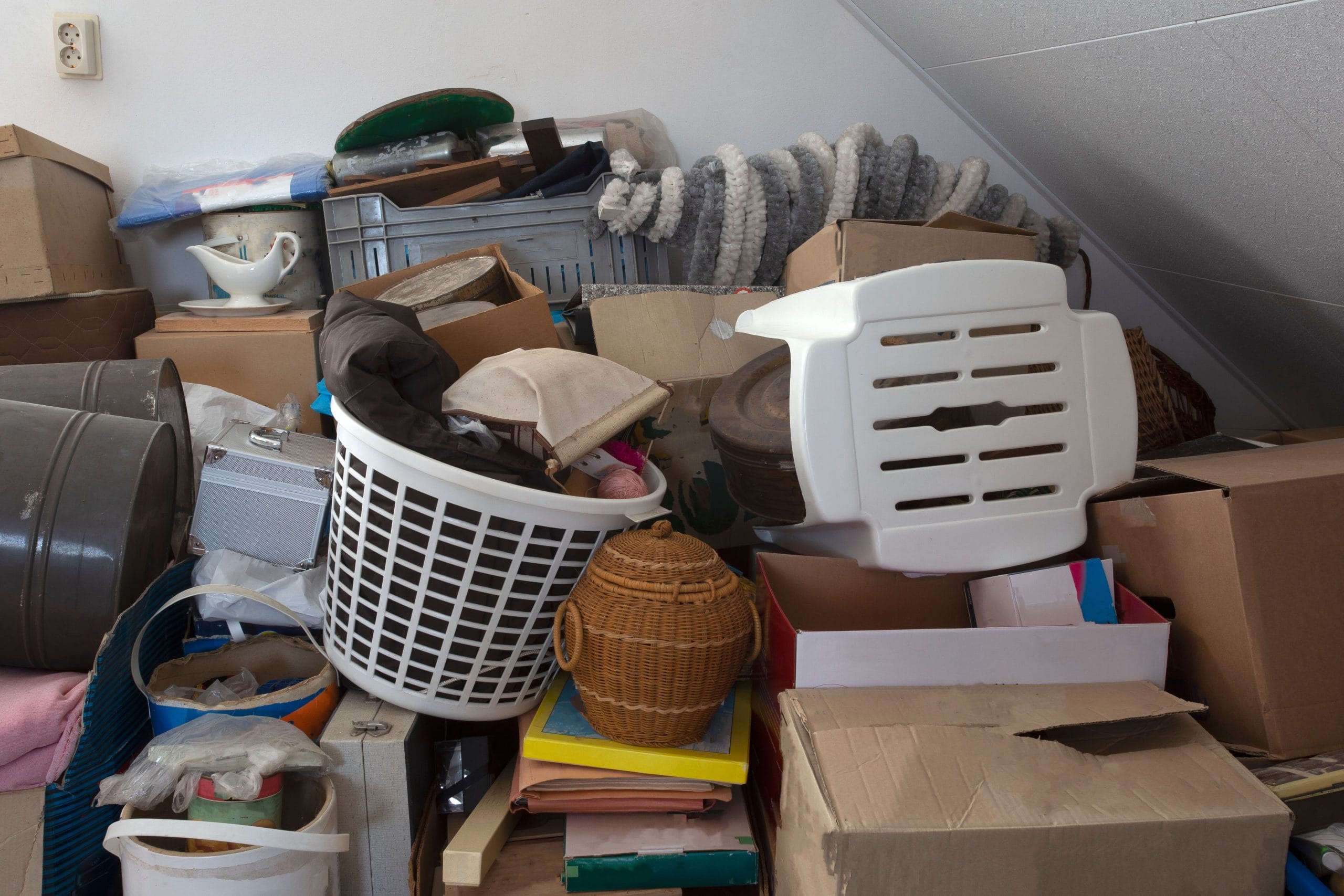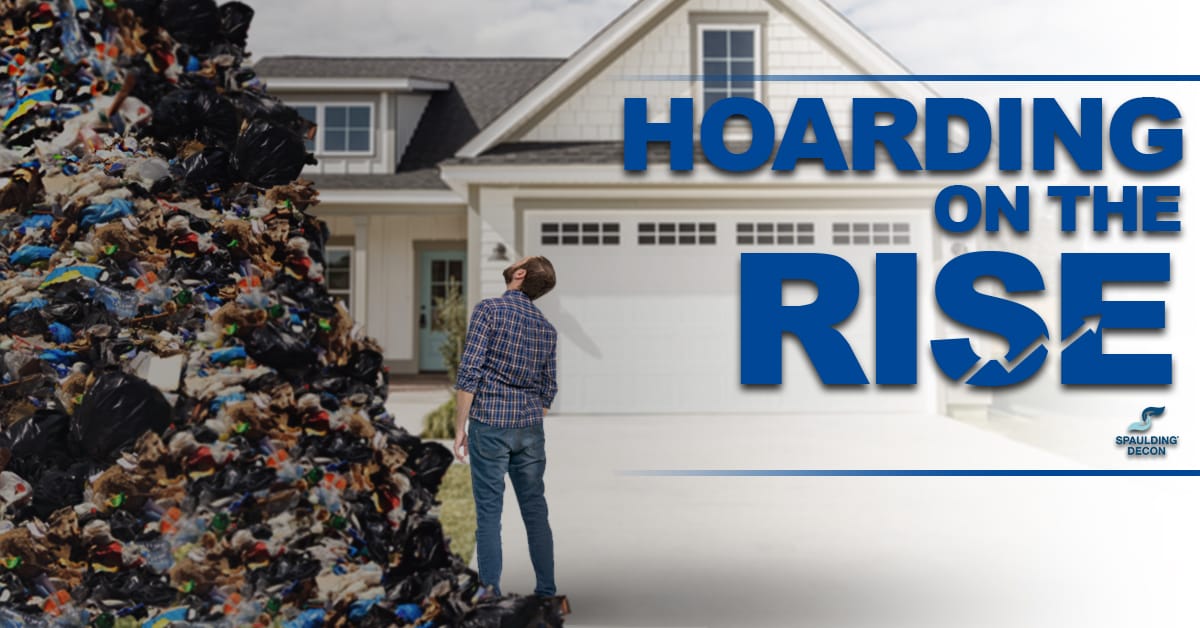Category: Hoarding Cleanup
- Biohazard / Crime Scene
- Decontamination
- Drug lab cleanup
- Hoarding Cleanup
- Mold Removal
- News and Updates
- Rodent Infestations
- Tear Gas Cleanup
- Water Damage

Hoarding Cleanup With Compassion: What the Process Really Looks Like (A Real Example)
This compassionate look into hoarding cleanup follows the Spaulding Decon team as they spend a full day clearing a single garage to help a client reach the emotional milestone of parking her car inside for the first time in years. The process highlights why patience and trust are essential, demonstrating how “gentle bargaining” and small…

Level 1 Hoarding Explained: What It Looks Like and How to Help
Level 1 hoarding is the least severe category on the ICD Clutter-Hoarding scale, which is a home environment/safety assessment tool. It is often unrecognized by outside observers and even by the affected individual. Indicators include difficulty parting with redundant items, excessive shopping for unnecessary items, accessible stairs, doors, and windows, no noticeable odors in the…

The 5 Stages of Hoarding Explained: Signs, Risks, When to Get Help
Keeping special items because they mean something to you is one thing. But keeping many items in your home just because you feel like you can’t part with them can become too much. Yes, there is such a thing as too much. And that’s because hoarding can pose health and other risks.

What To Do If Tenant Is A Hoarder
As a landlord, dealing with hoarding and tenant rights can be complicated. Hoarding is the excessive collecting and inability to part with possessions, regardless of their value. It creates health and safety issues, leading to safety and health code violations, building and fire code violations, and sanitation law infractions. Due to the connection between hoarding…

What is the cost to clean a hoarder house?
The pricing of a hoarding cleanup job depends on several factors, including the level of hoarding, the type of hoarder, whether the individual will be involved in the cleanup process, and the size of the house or apartment. The level of hoarding is important because it helps determine how cluttered the scene is and how…

What Causes Compulsive Hoarding?
Compulsive hoarding is a mental disorder that affects about 4% of the U.S. population. It is characterized by excessive saving of items that others may view as worthless, leading to clutter that disrupts living or work spaces. While there isn’t one main cause for compulsive hoarding, it can be triggered by various factors, including trauma,…

The Ins and Outs of Hoarding Cleanup
Hoarding disorder is a serious mental illness that makes it difficult for people to get rid of possessions, resulting in an accumulation of clutter that can be dangerous and unsanitary. Hoarding cleanup requires special equipment, protective gear, and professional services to safely remove and dispose of items, as there may be biohazardous materials present. It…

Overcoming the Hoarder Mentality
Hoarding is a disorder where individuals have an inability to get rid of possessions, even when they have no value, leading to excessive clutter and unsanitary living conditions. Hoarders often suffer from excessive acquisition and difficulty parting with items. Hoarding can lead to serious health and safety risks, including fires, pests, air quality issues, and…

Level 5 Hoarding Explained
Hoarding is a disorder characterized by the obsessive accumulation of personal belongings, animals, or trash. Hoarding can lead to life-altering consequences, such as financial instability and legal intervention. The National Study on Compulsive Disorganization created a scale to help classify hoarding behavior, with level 5 being the most extreme hoarding situation possible. Level 5 hoarding…

Level 4 Hoarding Explained
Hoarding level 4 is the second most severe level of hoarding, where multiple rooms are unusable, multiple exits are blocked, there are sewage issues, overpowering odors, large quantities of mold and mildew, and structural damage to the house that is at least 6 months old. There is also a large quantity of rotting food in…

Level 3 Hoarding Explained
Hoarding is a condition characterized by the obsessive and irrational need to keep excessive belongings and trash. The National Study on Compulsive Disorganization has developed a scale that defines the levels of hoarding to aid professionals and affected individuals in determining the severity of the problem. Level 3 hoarding is when the hoarder is unable…

Level 2 Hoarding Explained
Level 2 Hoarding is the second least severe category on the Clutter-Hoarding scale. Hoarders at this level start to become guarded about the mess and accumulation they can no longer hide. The indicators of a Level 2 Hoard include visible clutter, difficulty in cleaning the hoarded home, messy kitchens and bathrooms, blocked exits from the…

How to Help a Hoarder Who Doesnt Want Any Help?
Hoarding disorder is a serious condition that involves compulsive accumulation of possessions regardless of their value. It can be a health hazard and cause conflicts with family and friends, financial issues, and even evictions. Helping a hoarder requires patience, listening, and encouragement to seek professional help. Its important not to clean up for them or…

How to Remove Bio-hazardous Material in Hoarding Situations?
Hoarding is a mental illness defined as the excessive saving of items that others may view as worthless, leading to clutter that disrupts living or work spaces. Hoarding can lead to the accumulation of biohazardous material, including human and animal waste, mold, and rodent droppings. Cleaning up a hoarding situation requires protection and the proper…

Is Hoarding a Mental Illness?
Hoarding is a mental disorder that involves acquiring unmanageable and possibly hazardous amounts of items that are either useless or have limited value. It fills an emotional void for the person with the disorder and is often related to other mental health disorders such as depression, ADHD, anxiety, OCD, and neurodegenerative disorders. Hoarding can cause…

Is Hoarding Nature a Disease?
Term hoarding is a psychological condition in which people collect goods regardless of their usefulness or value. Hoarding is considered a mental disorder that can lead to lasting complications such as anxiety, depression, and severe headaches. Psychiatrists believe that hoarding occurs when a person becomes isolated from society or family and becomes aggressive in their…

Hoarder Houses – An Issue for the Whole Neighborhood
Hoarding disorder affects one in 50 people and can pose dangers to the individual living in the home and the entire neighborhood. It is important to differentiate between a neighbor who is messy and one who suffers from hoarding disorder. Hoarding behavior has harmful effects on the person and their family members, including social, financial,…

Hoarding and Clutter Cleanup in Commercial Estates
Hoarding can be a problem for landlords as it can cause breaches in the lease, emergency exits to be blocked, and damage to the property. Hoarders are protected under the Fair Housing Act and cannot be evicted for hoarding, but if it causes a breach in the lease, eviction may be possible. Clutter cleanup is…

How Much Does it Cost to Clean a Hoarder House?
The cost of cleaning a hoarder house depends on various factors, including the hoarding level, the hoarder type, the involvement of the hoarder during the clean-up process, and the size of the home. Hoarding levels range from 1 to 5, with each level indicating the severity of the hoarder’s disorder. Hoarder types include food hoarding,…

Hoarding Is on the Rise: The Causes of Hoarding Disorder
Hoarding is becoming more prevalent, especially in first-world nations like the United States, due to increased disposable income and access to cheap products. People accumulate items that may not have much value at all and only the hoarders see the value in the items they accumulate. Hoarding is often caused by past trauma or recent…

The Types of Hoarding
Hoarding goes beyond having a cluttered attic or box of rusty nails and can be a serious mental disorder. Common types of hoarding include food hoarding, animal hoarding, garbage or trash hoarding, sentimental hoarding, and media or paper hoarding. Hoarding can have serious consequences for the individual, their families, and their communities, including physical hazards,…

